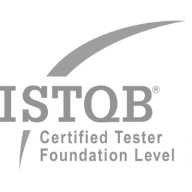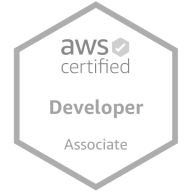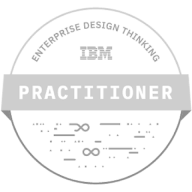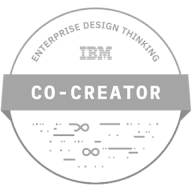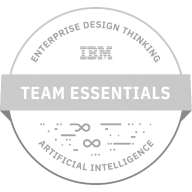
How to Implement DevOps in Business: 8-Step Plan & Strategy
Want to know more? — Subscribe
Today when technologies are changing rapidly, and the competition in any niche is increasing incrementally, more companies seek ways to deliver their software products faster while making them more reliable.
DevOps for business is the perfect solution if you want your product to excel. This methodology will give you a market advantage and pull you ahead of competitors.
DevOps is a promising niche, evidenced by its rapid CAGR growth of 19%. According to the ResearchAndMarkets report, this market will reach more than $14,554 million by 2027.
Keep reading this post if you want to apply this methodology to your business. We’ll share a guide on how to implement DevOps in an organization based on Softermii experience and we will present our vision of the DevOps implementation plan.
Read also: Top 8 Software Development Methodologies
What is DevOps, and Why Does It Matter?
DevOps is short for development and operations. It bridges the gap between three traditionally siloed departments: development (dev), quality assurance (QA), and operations (ops). Its goal is to provide high-quality software in a shortened systems development lifecycle.
Continuous engineering in DevOps consists of methods for establishing an environment where you can create builds, run tests, and push deploys. Furthermore, you can monitor performance and continually and automatically receive feedback through DevOps.
While the DevOps market is already extensive, businesses in various fields keep actively adopting this methodology into their DevOps processes. As under Gartner, more than 85% of companies will implement a cloud computing strategy, which is a significant trend in DevOps.
Although DevOps is currently at its peak, its implementation requires effort. A recent Puppet study suggests that many companies are stuck at the middle level of DevOps evolution. Puppet divides this middle level into low-mid, true-mid, and high-mid.
Puppet sees that cloud and automation are the further evolution of DevOps. Thus, this methodology has a future, and it is bright.
Main DevOps Benefits for Business
With simply these numbers in mind, it appears that DevOps is a worthy addition to any software development process. However, there are many other benefits of DevOps for business:
Quicker Deployment
Improving the efficiency of business operations is one of the benefits of DevOps implementation. This methodology allows you to deploy new processes, systems, and software considerably faster. It becomes possible since all your employees work together, and it’s easier for them to interact.
Increased Revenue and Stronger Bottom Line
A DevOps process flow allows companies to release software more frequently. It translates into lower expenses, improved KPIs, long-term growth, and stability.
Better Customer Experience
You can now increase customer satisfaction by delivering more reliable and bug-free software with DevOps. The higher the quality of service and the better the customer experience, the more profit you get. Therefore, this is one of the most prominent business benefits of DevOps.
Reduced Implementation Failure, Reflections, and Recovery Time
With shorter development cycles, DevOps promotes frequent code versions, which, in turn, makes it easy to detect code defects. It reduces the need for manual labor and lowers downtime. Besides that, if you fix issues immediately, you will waste far less money.
Rapid Delivery of Innovations to the Market
First, the DevOps approach implements only cutting-edge technologies into the software delivery cycle. Second, this methodology optimizes your company’s working processes. As a result, you’ll have more time to put innovative ideas into action.
Read Also: Rapid Application Development (RAD) model
Closely-knit Team
DevOps is all about uniting your employees. This methodology makes it possible to improve office cooperation and communication. As a result, you get a friendly team that does the job quickly and efficiently.
Companies that don’t use a DevOps strategy risk inefficiency and can easily make mistakes. It’s likely that they are relying on static infrastructure and prefer most of their tasks to be done manually.
It can result in miscommunication, operational inefficiency, code errors, slower release times, and lower-quality software. That leads to slowly losing their advantages to the competition.
Undoubtedly, this DevOps methodology implementation requires time and effort. But the real DevOps business value lies in that it’s an investment that brings long-lasting benefits.
DevOps continuous deployment is a smart use of your resources. When any software is being delivered faster, and in a superior state, it creates a domino effect in terms of the benefits to the business. So let’s move to understand what principles it is based on and how to apply DevOps in the right way.
DevOps Principles
We’ll start by listing the DevOps principles that virtually every software engineering company would agree must be present as part of a modern, high-functioning system. It will clarify the business value of DevOps, as part of the structure of this concept is that it saves both money and time.
- Process improvement initiatives must be present to truncate feedback loops. It continuously implements needed bug fixes and vulnerability remediation earlier and more cost-effectively.
- Continual experimentation that encourages risk-taking must be a part of the system, and you should learn from success and failure. It means that continuous attempts will lead to future mastery.
- Using DevOps automation should improve your organization’s efficiency as time passes.
- Those involved in your DevOps system should provide continuous feedback to the entire organization.
- You should incentivize development, test, and deployment teams to collaborate on shared goals.
8 Steps to Implement DevOps
Adopting DevOps for enterprises is a complex process. We divided it into several following DevOps implementation steps:
Establish a Unit Exclusively for DevOps Operations
For DevOps to work properly, you first need to assign a centralized unit. This unit will be responsible for developing operational methods and other solutions to optimize workflows.
Start with CI/CD
CI/CD stands for continuous integration and continuous delivery. These practices applied in DevOps help bridge the gaps between development and operational teams.
If you start with CI/CD approach early on, your software is more likely to become flawless faster. It is since you detect bugs and errors in the early development stages.
Implement Test Automation
Test automation will help your employees avoid repeating the same tasks. The more innovatively you automate the test process, the fewer errors your software will have. It, in turn, means that product development and deployment will be faster.
Implement Coherent Deployment
The processes that make up a deployment include code generation, testing, versioning, deployment, and post-deployment. What does coherent deployment mean? You release different code versions instead of releasing all code at once.
Keep All Teams Informed
This step is the main idea of DevOps: you need to involve all parties concerned with software development. It is significant to inform everyone promptly and keep work processes transparent.
Be Patient and Teach Your Team of That
Each of your employees works at a personal pace. That is why you need to take care of organizational aspects within the company. From time to time, hold meetings with employees, where you will explain all working guidelines.
Automate Dashboards
Automate dashboards so that your DevOps specialists can instantly reach any data and reports. Dashboards collect information about various processes within your company, and this data further allows you to track your product development progress.
Keep Track of Performance
The final, never-ending step will be to monitor the performance of your employees. You can do this after you have implemented all the tools and practices necessary for the productive work of your DevOps team.
Following this DevOps implementation roadmap, you will achieve success without any problems.
Key Pillars of DevOps Implementation Strategy
These are the most fundamental aspects of a DevOps implementation plan. We’ve stated the main pillars as briefly as possible for you. So let’s find out more about them.
Identify the Vision and Goals
When you first engage with a client, try to get as much information as possible about what they want their software to do.
Identify Foundational Factors
Once you learn what the software is supposed to do, you must be ready to set up and work within the most likely framework to lead to your success. Your completion of the product promptly is what grows your reputation within the industry.
Establish Critical Success Factors
Draw on your team’s prior collective experience. Get an idea of what tech stack and tools you need to get through this project expediently with as few setbacks as possible.
Track Your Overall Progress
Base your DevOps implementation strategy on measurements to track the progress and realization of benefits. It means setting up checkpoints throughout the project that can be attained realistically. Don’t overwork any team members, but make sure that no one is procrastinating.
Automate Software Building
Although automation is not equal to DevOps, it is a critical solution for fast and efficient software creation and testing. Thus, automation is something to think about if you aim to increase deployment speed and reduce failure.
DevOps Stages & Toolkit
There is a wide range of processes within the DevOps software development lifecycle. There are tools to help you with DevOps at each stage. So, let’s cover the most efficient instruments for every step:
Defining and DevOps Planning
Focus on developing a realistic DevOps workflow for iterations, issue tracking, and release management. Notable tools or tool vendors in this space include IBM, Jama Software Atlassian, CA Technologies, and iRise.
Code, Build, and Configure
At this stage, your development team’s focus should be on code development and review, source code management, and code merging. Notable tools and vendors for this stage include Bitbucket, IBM, Gitlab, Electric Cloud, and GitHub.
Testing
You must verify that the software release and code quality are maintained throughout the development process. Remember that you should deploy only the highest-quality code to production. Notable tools and vendors include Delphix, FlawCheck, HP, IBM, Skytap, Microsoft, Parasoft, SonarSource, and ThoughtWorks.
Packaging and Pre-production
You might hear this period referred to as staging in some cases. It refers to the activities involved once the release is ready for deployment. Notable tools and vendors include IBM, Inedo’s ProGet, Jfrog’s Artifactory, and Sonatype Nexus repository.
Release, Deployment, and Orchestration Phase
It is the process of releasing the software that you have created. It usually involves changing management, releasing approval and automation, schedule orchestration, provisioning, and deploying into production. This space’s tools and vendors include Clarive, Automatic, BMC, IBM, Flexagon, VMware, and XebiaLabs.
Continuous Management and Configuration
This stage includes various aspects of automation and management of code infrastructure. Notable tools and vendors include Ansible, Chef, IBM, Puppet Labs, Otter, and Salt.
Release of Monitoring Reports
These should include a full work-up of application performances, as this phase helps identify issues impacting the user experience. Tools and vendors include Plumbr, Big Panda, IBM, New Relic, and Wireshark.
The Main DevOps Trends for 2022
At this point, we’ll go over a few of the principal DevOps trends that should be readily noticeable in 2022. As you go over them, you should no longer have the question of why DevOps matters.
AI, Data Science, and ML Will Foster DevOps Growth
Artificial intelligence and machine learning have a wide range of use cases, from applications of AI in healthcare, real estate, and education to development operations.
Indeed AI, ML, and DevOps together are a perfect fit for making software development and delivery more efficient. They’re capable of processing enormous amounts of information and helping to perform menial tasks. They can learn patterns, suggest practical solutions, and better anticipate problems.
If the goal of DevOps is to unify development and operations, AI and ML can smooth out many of the tensions that have divided the two disciplines in the past. DevOps and Big Data are reaching a new level of collaboration that will contribute to the automation of processes and their configurations in 2022.
DevSecOps: Security Will Become a Primary Focus
The CI/CD pipeline makes it possible to employ rapid changes daily to address customer needs and demands. This pipeline can be automated as well. Because of this, security has to be foremost in the mind of DevOps engineers.
Thinking about security from the beginning of a project is the best way to avoid any breaches. Measures can be built into the groundwork of software instead of being bolted on. In DevOps in 2020, security features will no longer be add-ons. They will be present from the first moment a project is envisioned.
Increase in the Adoption of Microservices Architecture
DevOps and microservices have started going hand-in-hand lately. Microservices architecture helps companies make deployments and easily add new features.
Implementing microservices into your DevOps team can help companies focus on the runtime and efficient delivery of new development sources. It eliminates the hassle of creating dependency errors when something decides to malfunction.
Scaling Up of Serverless Architecture
Serverless has been spoken of within the industry since AWS introduced its Lambda program in 2014. Usually, serverless applications are tightly coupled with their underlying computing platforms. It means you should be sure that you’re comfortable with that level of lock-in if you elect to use one.
After Lambda’s introduction, Azure Functions was released. Google Cloud Platform also entered the market with Cloud Run. It is a service that allows you to bring your own containers to the platform. It seems easier than requiring you to upload the code on approved runtimes that Lambda or Functions currently support.
Final Thoughts
The DevOps model for business intelligence is a way to develop software quickly and efficiently. DevOps also allows you to increase profits, improve the customer experience and reduce errors in software development. Therefore, it is not surprising that many businesses are actively adopting this methodology.
It takes some effort to implement DevOps in your business. To do this, you must adhere to advanced principles and standards. Among the DevOps implementation steps you need to take are creating a DevOps unit, applying a CI/CD approach, and automating testing processes.
Also, hiring a DataOps engineer may be a good way to improve your data operations and get more value from your data. While DevOps is a great all-around approach to software development and delivery, DataOps is specifically designed to meet the needs of businesses that rely heavily on data. Ultimately, the decision of whether to hire a DevOps or DataOps engineer depends on the specific needs of your business. However, if you are looking for a way to improve your data operations and get more value from your data, then hiring a DataOps engineer is a good option to consider.
However, there are much more requirements for effective DevOps implementation. That is why it may be challenging to do this on your own. The best solution, in this case, is to turn to reliable DevOps experts.
We have broad experience in providing DevOps services of multiple complexities for various projects and fields of expertise. Our engineers administer instant access to seamless application delivery processes, cloud-based software development, IT infrastructure optimization, advanced security, automation as one of the core features, full scope delivery experience, eliminating manual operations, cost cutting due to automated operations, and quality increase due to continuous integration process.
We apply the best DevOps services for any type of cooperation models as well as different kinds of DevOps and Cloud services for different needs – continuous DevOps support, separate parts of DevOps services, consulting and DevOps services in the software development life cycle.
If you want to implement DevOps in your business, the Softermii team will handle this job. We deal with CI/CD implementation, information security, cloud-based infrastructure support, and continuous QA in particular. Just drop us a line!
Frequently Asked Questions
The primary goal of DevOps is to bridge the gaps between siloed teams of development, testing, and operations specialists to provide high-quality software within a shortened development lifecycle.
Businesses are increasingly adopting DevOps since it provides the following benefits: quicker deployment, increased revenue, stronger bottom line, better customer experience, reduced implementation failure, reflections, and recovery time, rapid delivery of innovations to the market, and a close-knit team.
You can do it by following the next steps:
- Establishing a unit for DevOps operations
- Implementing CI/CD, test automation, and coherent deployment
- Keeping all your teams informed
- Automating dashboards
- Keeping track of your company’s performance
DevOps consists of the following stages:
- Defining and planning
- Coding, building, and configuring
- Testing
- Packaging and pre-production
- Release, deployment, and orchestration stages
- Continuous management and configuration
- Releasing monitoring reports
It's the process of developing a custom mobile app for realtors that aims at simplifyingand improving the industry and realtor experience. For example, an app for realtors will enablethem to close more deals, help manage multiple properties online in real time, and empowerbuyers to easily choose the apartment and close deals electronically on an Airbnb-like app.
How about to rate this article?
849 ratings • Avg 4.7 / 5
Written by:

















